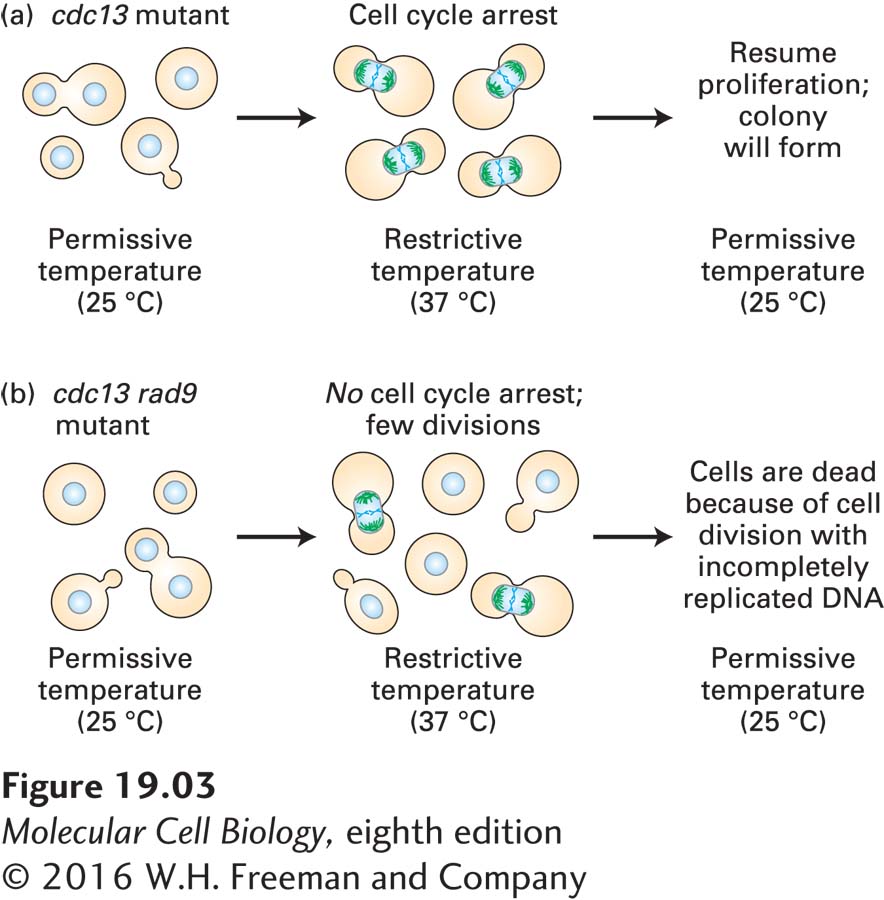
FIGURE 1 An experiment that led to the checkpoint pathway concept. (a) When shifted to the restrictive temperature, cdc13 mutants arrest cell cycle progression because of incomplete DNA replication. When the cells are returned to the permissive temperature, they resume proliferation because they have maintained viability during the cell cycle arrest. (b) Cells that are cdc13/rad9Δ double mutants do not arrest when shifted to the restrictive temperature because they cannot sense that their DNA is incompletely replicated. The cells undergo mitosis, and this leads to cell death because genetic information is lost. Therefore, cells quickly lose viability at the restrictive temperature and can no longer resume proliferation when they are returned to the permissive temperature.